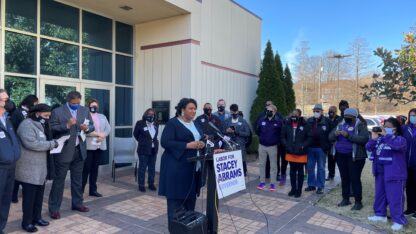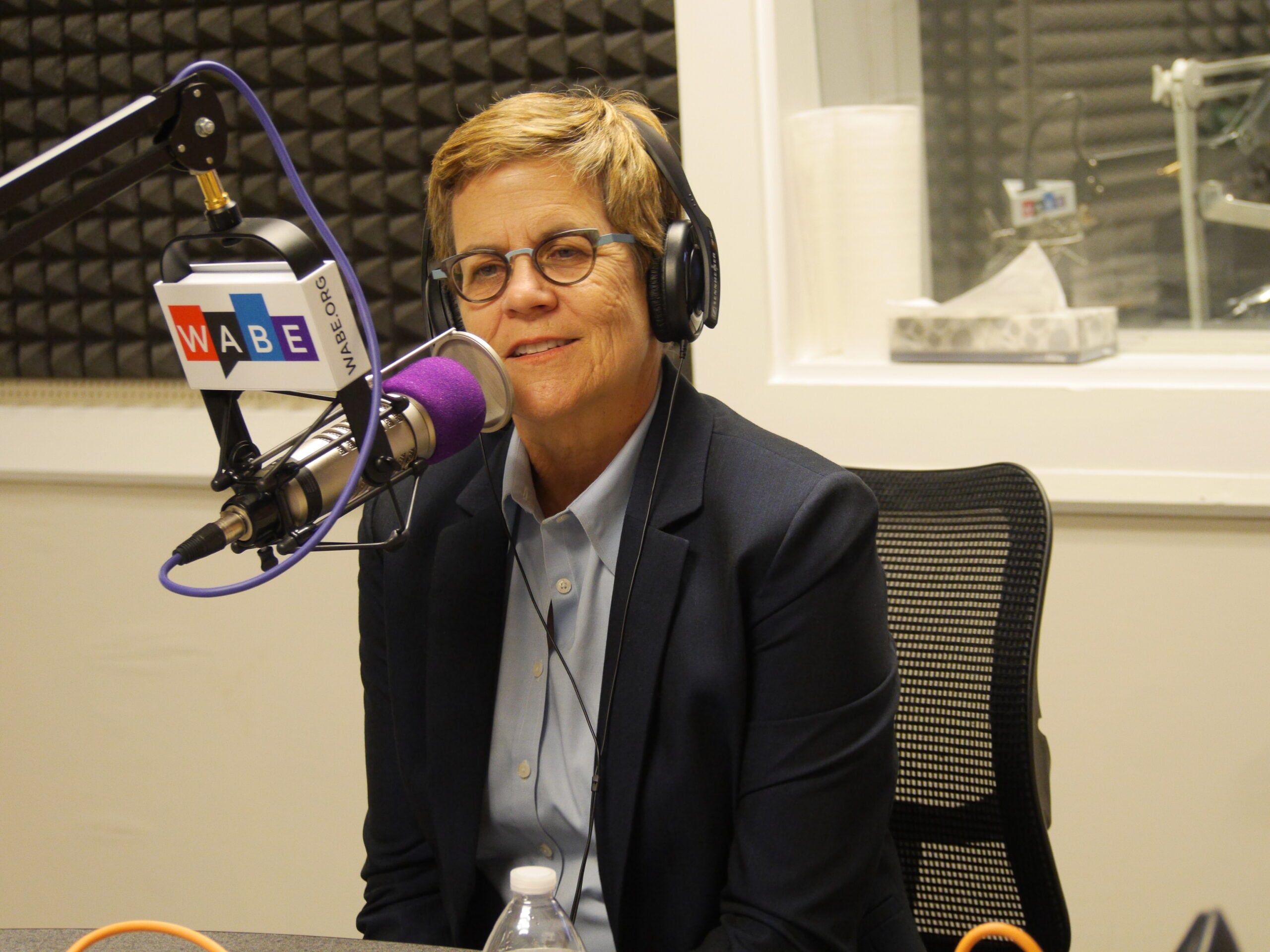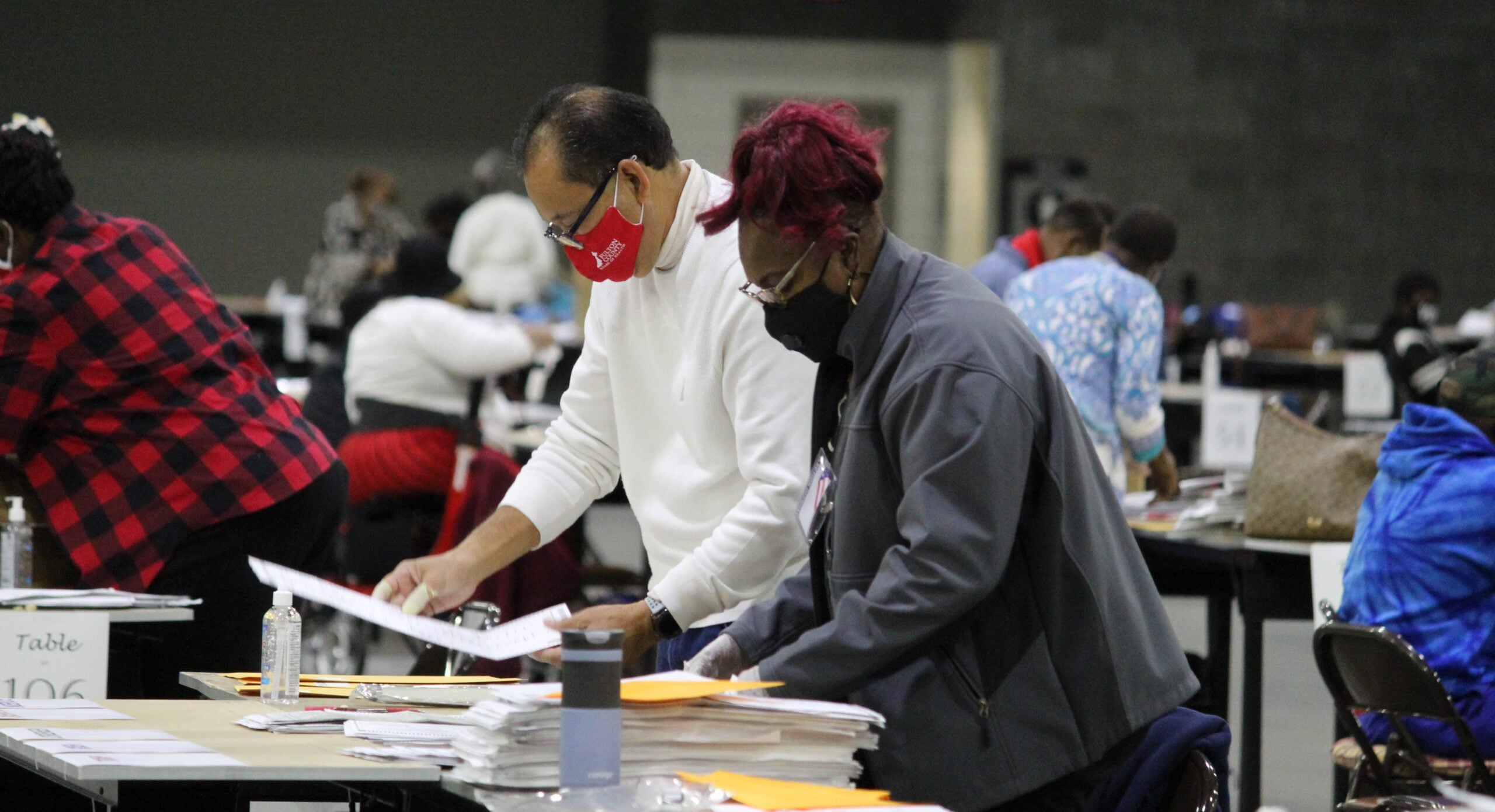Voters To Decide On Overhaul Of Ga. Judicial Watchdog Group

Among several ballot measures next month, Georgia voters will be asked whether they want to change the agency that polices judges in the state, known as the Judicial Qualifications Commission (JQC). If passed, the constitutional amendment would allow state lawmakers to recreate the commission.
Supporters say the changes are needed because the watchdog agency needs more oversight, but critics say the move would strip the agency of its political independence and effectiveness.
What Does the JQC Do?
If you’re in court and think a judge’s behavior may be unethical, you can make a complaint to the JQC, which is charged with investigating judicial misconduct.
Over the past decade, the commission’s investigations have led to the resignations or removals of more than 60 judges, according to a former director of the agency, Ronnie Joe Lane.
Richard Hyde, a current commission member, said he is proud of the work the agency has done in recent years.
“So proud in fact that the way we investigate judges in Georgia is used as an international model of how to investigate judicial corruption,” Hyde said.
Judges have left the bench for a range of behavior, he said, from pulling out a gun in court to writing racist comments on post-it notes about an attorney, to a response to a woman seeking a temporary protection order:
“This woman that had been repeatedly battered by her meth-addicted boyfriend was asked the following question: ‘Lady why should I grant this? Do you even work? Do you even do anything other than spread your legs and stay pregnant?’” Hyde recalled.
Hyde said the agency has been successful in being able to go after these types of cases partly because of how the JQC currently works.
The JQC was created in 1972 when voters approved a constitutional amendment to create the agency.
Now, some state lawmakers want to change the constitution to have more control over the agency, saying it needs more oversight.
The Push For An Overhaul
State Rep. Wendell Willard, R-Sandy Springs, who sponsored the amendment, said the agency has had issues with giving judges due process.
“Everybody is entitled and should be treated with fairness and due process,” Willard said. “When the system fails to provide that for anyone of us, it fails for all of us.”
He said he’s heard of instances of JQC members abusing their power, like from former DeKalb Superior Court Judge Cynthia Becker, who recently testified at a committee hearing about the commission.
Becker resigned while being investigated for her handling of a corruption case. She said she wasn’t given enough heads up for the commission’s inquiry, which eventually led to criminal charges that were later dropped.
“If I had been accused of shoplifting at Walmart, I would have a presumption of innocence. That’s not what judges in this state face when they face this JQC,” Becker told lawmakers.
Willard said the agency needs more oversight. Right now, the JQC’s structure is cemented in the state constitution and works independently from the Legislature.
“Our amendment will give more flexibility; it’ll take this strict way of having the JQC structured and give some flexibility that the Legislature can modify, from time to time, if necessary,” Willard said.
But critics of the amendment say it’s exactly that flexibility they don’t want to hand over to state lawmakers. If passed, the legislature would get to appoint the majority of the commission’s seven members, while the State Bar of Georgia would lose its direct appointments.
Critics: Commission Must Stay Independent
“This amendment politicizes the JQC’s actions in an unprecedented way,” said Sara Totonchi, executive director of the Southern Center for Human Rights.
She said she’s worried that changes could allow state judges who have friends in the Legislature to get a pass and strip the agency of its power.
“In order for it to be effective, it absolutely must be able to be independent,” she said.
Totonchi said she questions the motivation behind the proposed change. For one, she said, a former judge who was investigated by the commission for a sexual harassment complaint and resigned is now a co-sponsor of the amendment.
“I think Johnnie Caldwell’s involvement in this legislation is as clear a conflict of interest as you can ever have,” she said.
State Rep. Caldwell, R-Thomaston, did not respond to WABE’s request for comment for this story, but told 11alive his sponsoring of the amendment has nothing to do with his resignation.
There are a few Republicans who oppose the amendment. State Sen. Josh McKoon, R-Columbus, said the commission has been a bright spot when it comes to state ethics because of its independence.
“It’s a real shame that there’s a real possibility in November that voters can end that and replace it with a commission that’s essentially a lapdog to a handful of elected officials,” McKoon said.
Willard denies that the changes are politically motivated and that the changes could give favor to judges.
“That is the last thing and I don’t think we could do that if we wanted to,” he said.
Voters To Decide Amendment 3 In November
If the amendment does pass, Willard said he is looking at making some changes to the bill next year that sets the structure of the commission.
“If something is not working properly, it doesn’t function properly, it’s a part of the state government in this case,” Willard said. “I think it’s incumbent upon us as legislators, who are citizens and we’re elected by the citizens, to improve that system.”
But critics say some changes to rules and procedures can be made now without altering the state constitution.
Georgians will decide what happens next when they vote on Amendment Three in November.
9(MDAxODM0MDY4MDEyMTY4NDA3MzI3YjkzMw004))








